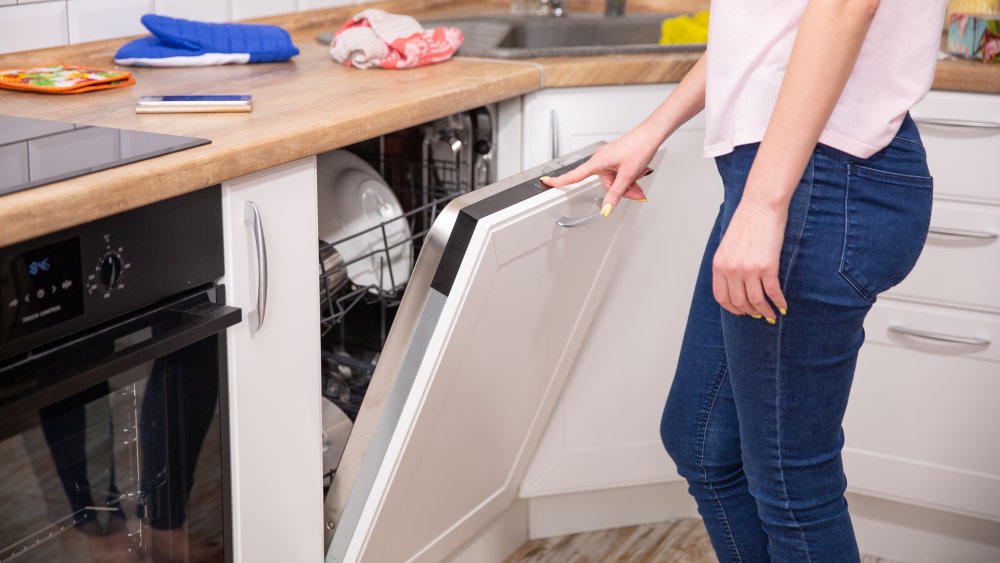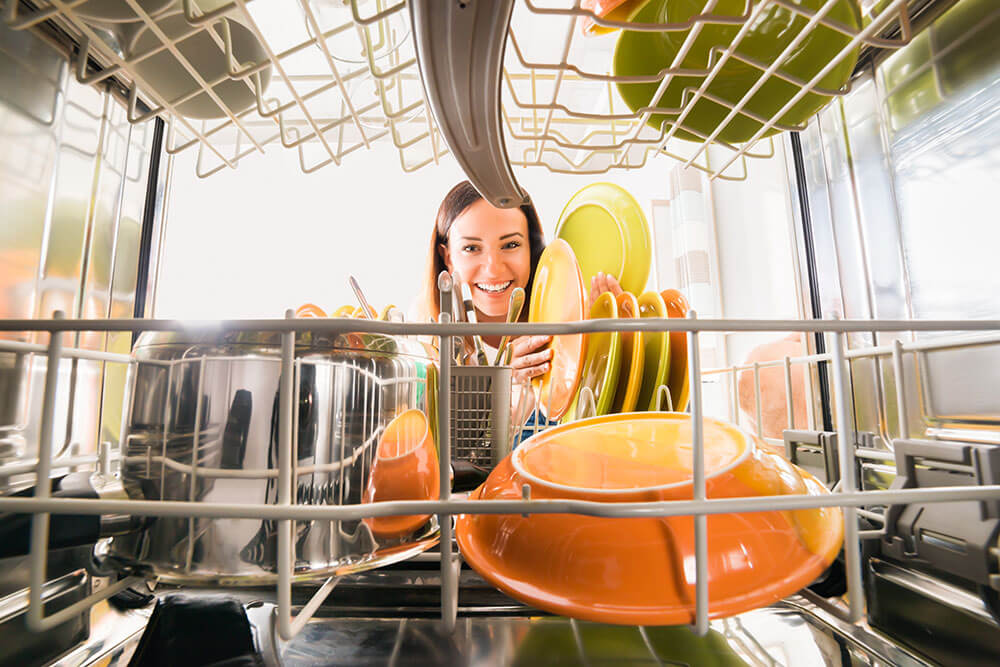Common Dish Washer Problems
Common Dish Washer Problems
Blog Article
What are your opinions concerning Why is My Dishwasher Not Cleaning Properly??

Having your dishwasher failure or malfunction can be a big deal as well as cause some discomfort in your home. Dishwashers are machines that we use to clean meals and flatwares immediately to conserve us the tension of manually doing it.
Like every other maker that reduces human initiative, dish washers can break down and establish some mistake at some time in time. There are numerous faults your dishwasher might create, as well as while some of them can be addressed by replacing some parts or repairing them, other more serious problems will call for that you get a new dishwashing machine.
This article will identify a few common faults your dishwasher can establish to hinder its general performance and how these faults can be fixed.
Typical Faults
Common dishwashing machine faults might vary from small to significant ones. Depending on the degree, you will either require the solutions of expert plumbing professionals to fix or replace it.
Some of the most common faults include:
Leaky Dishwashing machine
This is most likely one of the most day-to-day dish washer trouble, and also the bright side is that it is simple to recognize. Leakages occur as a result of several reasons, and the leakages can bungle your kitchen area. Typical reasons for dish washer leakages consist of;
If your meals and cutleries appear of the dish washer and still look unclean or unclean, your spray arms may be a trouble. In many cases, the spray arms can obtain obstructed, as well as it will certainly call for a fast tidy or a replacement to function effectively once again.
Lack of ability to Drain pipes
Occasionally you may notice a huge amount of water left in your tub after a wash. That is most likely a drainage issue. You can either examine the drain tube for damages or obstructions. When in doubt, call a specialist to have it inspected as well as fixed.
This is another usual dishwashing machine problem, and also it is generally caused by food particles or grease lingering in the maker. In this situation, seek these bits, take them out and also do the meals without any recipes inside the device. Clean the filter completely. That will certainly assist get rid of the negative smell. Make certain that you eliminate every food fragment from your recipes prior to transferring it to the device in the future.
Verdict
Some of these typical dish washer faults can be repaired conveniently at home, however in some cases, the mistakes could be substantial and may need the focus of professionals. If you reside in Rochester, Syracuse, and also other parts of America, let the specialists properly identify what could be incorrect with your dish washer and proffer a remedy.
We also install dishwashing machines if you simply acquired a new one or mean to change your very own. With our years of experience in the industry, we make sure to provide you the most effective feasible services.
8 Most Common Dishwasher Problems & How to Fix Them
My Dishwasher Isn't Draining
If your dishwasher isn't draining properly, you may be having an issue with your dishwasher's drainage system. This can be caused by a variety of issues:
Clogged drain: The dishwasher's drain may be clogged with food particles or other debris. Malfunctioning pump: The dishwasher's pump is responsible for moving water through the system and out of the drain. If it's damaged or not working correctly, it could cause a drainage failure. Broken or clogged hose: The dishwasher's drain hose may be broken or clogged, causing water to back up in the system. How to Fix Dishwasher Not Draining
Check the drain for any blockages. A clogged or kinked hose will prevent water from properly draining out of the dishwasher. Use a plunger or a pipe snake to clear any debris that may be blocking the drain. Check the dishwasher's pump for damage or malfunction. Consult the manufacturer's manual or call a professional appliance repair service if you think the pump may be the issue. Check the drain hose for any damage or blockages. The hose should be straight and free of any debris or kinks. Check the drain pump filters for any blockages if the hose is clear, but the dishwasher is still not draining. Some dishwashers have filters that can become clogged with food particles or debris. Cleaning or replacing the filters may help resolve the issue. Run a dishwasher cycle to make sure the water is properly draining out. My Dishwasher Is Leaking
A leaking dishwasher can be frustrating. There are a few possible causes that you can investigate to try and diagnose the issue:
Inspect the dishwasher for any visible signs of damage or wear and tear. Look for cracks or holes in the door and around the rubber seal. Check the hoses and pipes connected to the dishwasher for any signs of leaking. If there is no visible damage, you may hear the sound of water dripping or the sound of the water pump running. This might mean a problem with the water inlet valve or the drain pump. You may also notice a puddle of water on the floor near the dishwasher. This could indicate a blocked drain hose or a faulty drain pump. Finally, check the seals around the door and the door for any signs of damage, wear and tear, or improper installation. If any of these issues are present, they must be fixed immediately to avoid further water damage. How to Fix a Leaky Dishwasher
Identify where the leak is coming from. The most common places for a dishwasher to leak include the door, hoses, and pump. If the leak is coming from the door, the gasket or seal may need to be replaced. If the leak is from the hose or pump, the damaged parts should be replaced with new ones. Finally, check all the connections and make sure they are secure and not leaking How to Fix a Dishwasher That Won't Start
The perfect remedy for a dishwasher that won't start is confirming all the components are in perfect working order and that the wiring is in good condition. Next, inspect the motor and replace it if necessary.
If these steps do not resolve the problem, contact a professional appliance repair technician to diagnose and fix the issue.
Conclusion
Most dishwashers are reliable appliances with a long lifespan. As with all devices, checking your dishwasher regularly will help you quickly identify any issues and ensure that it is running efficiently.
And if you're in the market for a new dishwasher, don't let dishwasher problems ruin your day. Upgrade to a reliable, efficient model today! Check out our full selection of top-quality dishwashers that includes a range of styles and features to suit any budget and household needs.
https://www.coastappliances.ca/blogs/learn/common-dishwasher-problems

As a devoted person who reads on The Most Common Dishwasher Problems, I imagined sharing that piece of content was really useful. So long as you enjoyed reading our page please remember to pass it around. Thanks so much for going through it.
Schedule Estimate Report this page